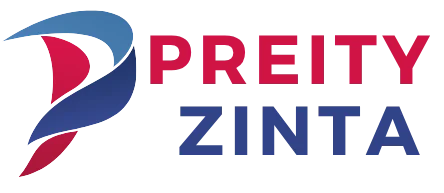Table of Contents
ToggleIn a world where every skill and achievement needs a shiny badge, digital credential platforms are the superheroes we didn’t know we needed. Gone are the days of dusty diplomas and crumpled certificates hiding in a drawer. These platforms are transforming how individuals showcase their skills, making it as easy as swiping right on a dating app.
Overview of Digital Credential Platforms
Digital credential platforms transform the way people present their skills and accomplishments. These online systems streamline the verification process, making credentials accessible and verifiable.
Definition of Digital Credential Platforms
Digital credential platforms refer to web-based systems that facilitate the creation, sharing, and verification of educational and professional credentials. These platforms allow users to receive digital badges, certificates, or diplomas, which serve as proof of their qualifications. Users can showcase achievements on their resumes or social media profiles. Institutions and organizations utilize these platforms to enhance the credibility and accessibility of credentials.
Importance in Today’s Digital Landscape
In today’s digital landscape, credentialing processes have gained significant relevance. Businesses prefer candidates with transparent and easily verifiable qualifications. Digital credential platforms simplify hiring by providing instant access to candidates’ achievements. They reduce fraud through secure verification methods, fostering trust among employers and educational institutions. As remote work becomes more prevalent, showcasing skills globally has never been more critical, amplifying the need for these platforms.
Key Features of Digital Credential Platforms
Digital credential platforms incorporate several essential features that enhance user experience and credentials’ reliability.
Security and Privacy Measures
Platforms implement robust security protocols to safeguard personal data. Encryption technology protects sensitive information during transmission. Access controls limit user data exposure to only authorized individuals. Regular audits ensure adherence to security compliance protocols. Privacy policies outline data usage and minimize the risk of unauthorized access. Users can manage their privacy settings, giving them control over who views their credentials.
Verification Processes
Verification processes streamline credential authentication, ensuring accuracy and trustworthiness. Digital platforms utilize blockchain technology for immutable record-keeping. Employers can access credential verification in real-time, reducing hiring delays. Independent third parties often conduct verifications to establish credibility. Verification badges provide instant evidence of authenticity, boosting candidates’ appeal. Such measures strengthen the connection between qualifications and actual skills, fostering confidence in potential employers.
Popular Digital Credential Platforms
Digital credential platforms streamline the verification of skills and achievements, making them essential in today’s job market. Several platforms have emerged, each offering unique features and benefits.
Platform A: Features and Benefits
Platform A specializes in user-friendly interfaces and includes mobile compatibility. This platform allows users to create and share digital credentials easily. Organizations can utilize customizable templates for branding purposes. Security is onsite with advanced encryption methods protecting user data. Employers can verify credentials directly through the platform, enhancing trust in applicants’ qualifications. The integration with various educational institutions ensures a diverse range of badges and certificates.
Platform B: Features and Benefits
Platform B focuses on blockchain technology for secure, immutable records. Users benefit from instant verification of credentials, which speeds up the hiring process. This platform offers a variety of credential types, including micro-credentials and skill badges tailored to specific industries. Analytics tools provide users with insights into how credentials are viewed by potential employers. Collaboration features enable educational institutions and employers to work together, enhancing the overall credentialing experience.
Platform C: Features and Benefits
Platform C emphasizes accessibility and inclusivity in digital credentialing. Offering multilingual support, it caters to a global audience. This platform makes sharing achievements simple through social media integration. Users can manage their privacy settings easily, ensuring control over who sees their credentials. Real-time updates keep accomplishments current, while support teams assist users with any issues. The platform also features partnerships with numerous industry leaders, providing recognized credentials that enhance job prospects.
Use Cases for Digital Credential Platforms
Digital credential platforms play a pivotal role across various sectors, showcasing their versatility and adaptability. Both the education sector and corporate environments leverage these tools to enhance credibility and streamline processes.
Education Sector Applications
Educational institutions utilize digital credential platforms to issue and manage diplomas and certificates. Simplifying the verification process, these platforms allow students to share qualifications with employers and peers easily. Institutions benefit by reducing administrative workloads often associated with physical credentials. They can track student achievements through analytics and reporting features, making it easier to identify trends in skill acquisition. Additionally, students find value in earning digital badges for completed courses, which can be shared on professional networking sites, raising their profiles among potential employers.
Industry and Corporate Uses
In the corporate world, organizations deploy digital credential platforms to verify employee qualifications and certifications efficiently. Utilizing these platforms helps companies mitigate fraud and ensure that hires possess the claimed skills. Credentials can be instantly shared with HR departments, expediting the hiring process. Employers also appreciate the ability to recognize employee accomplishments through digital badges, which can motivate staff and enhance loyalty. Some companies adopt these platforms to create tailored training programs, enabling employees to gain relevant certifications that align with industry needs, thus fostering a skilled workforce.
Challenges and Limitations
Digital credential platforms face several challenges that impact their effectiveness and widespread adoption. Understanding these barriers is essential for addressing issues in implementation and usage.
Adoption Barriers
Many organizations hesitate to fully embrace digital credential platforms. Resistance often arises from concerns over security and privacy, with some institutions uncertain about how to protect sensitive data. Additionally, cultural attitudes toward traditional credentials can hinder acceptance. Stakeholders may favor physical diplomas and certificates, viewing them as more legitimate compared to digital formats. Awareness and education about the benefits of digital credentials also play a crucial role; many employers remain unaware of their advantages in verification and efficiency.
Technical Integration Issues
Integrating digital credential platforms with existing systems poses significant challenges. Compatibility with legacy software often becomes a barrier to seamless implementation. Organizations may struggle with data migration, leading to potential disruptions during the transition. Developers face the task of creating user-friendly interfaces that can accommodate various technical skill levels among users. Moreover, ensuring interoperability with other educational and professional systems remains a critical concern. Effective solutions require collaboration among stakeholders to facilitate smooth integration and communication across platforms.
Digital credential platforms are revolutionizing how individuals showcase their skills and achievements. By providing secure and easily verifiable credentials, these platforms respond to the evolving demands of the job market. They enhance accessibility and credibility while streamlining the hiring process for employers.
As businesses continue to embrace remote work and digital solutions, the importance of these platforms will only grow. Their ability to mitigate fraud and foster trust between candidates and employers is invaluable. While challenges remain in terms of adoption and integration, the potential benefits far outweigh the obstacles.
The future of professional qualifications lies in digital credentials, making them an essential tool for both individuals and organizations aiming to thrive in a competitive landscape.







